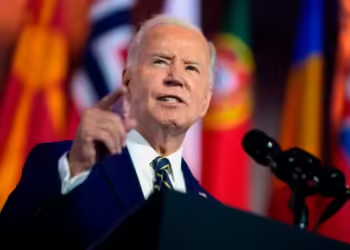Xiomara Castro: Honduras’ first female president sworn in
BBC News
Xiomara Castro has been sworn in as Honduras’ first female president, amid a political crisis that threatens her plans for the impoverished nation.
Speaking at the ceremony, the leftist leader said she was taking the lead of a “broken” country – but vowed to pursue social justice and transparency.
Ms Castro, 62, has promised to tackle powerful drug trafficking gangs and liberalise strict abortion laws.
But her agenda has been undermined by a feud in her Libre (Free) Party.
Ms Castro’s husband, Manuel Zelaya, ruled the country from 2006 until 2009, when he was ousted by a coup. She ran for office twice in the years following his removal from power, before her victory in the election last November.
Since then, Ms Castro has enjoyed a wave of positivity among the public. Her arrival marks the end to the 12-year reign of the right-wing National Party, which has been plagued by scandals and corruption accusations.
Thousands of people joined the inauguration ceremony at the national stadium in the capital, Tegucigalpa.
“The economic catastrophe that I’m inheriting is unparalleled in the history of our country,” she said in her speech, highlighting the need to restructure the national debt.
But she promised: “My government will not continue the maelstrom of looting that has condemned generations of young people to pay the debt they incurred behind their back.”
US Vice-President Kamala Harris was among the foreign officials who attended the inauguration – receiving a huge wave of applause from the gathered crowd.

The Biden administration hopes Ms Castro will fight corruption, poverty and violence, long-standing problems that have helped fuel illegal immigration from the Central American country to the US.
Taiwanese Vice-President William Lai was also at the ceremony, as Honduras is one of the few countries in the world to have diplomatic ties with Taipei.
Ms Castro replaces the divisive President Juan Orlando Hernández, who has been dogged by allegations of ties to the drugs trade after his brother was jailed for trafficking in the US – claims he has repeatedly denied.
The presidential sash was placed upon her by her preferred choice for leader of the congress, Luis Redondo.
But she takes office amid a dispute with dissidents in her own party.
Ms Castro had reached an agreement with another candidate, Salvador Nasralla, who stood down from the race to strengthen her chances of victory.
In return, Ms Castro pledged to support Mr Redondo, who is from Mr Nasralla’s party, as Congress leader. But a group of Libre lawmakers rebelled against the proposed candidate, and aligned with the National Party to vote for one of its members to head Congress.
As a result, the rival candidates have each declared themselves head of Congress – and the deadlock could result in legislative paralysis.









